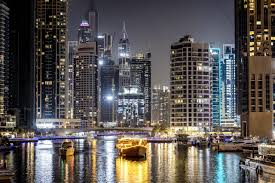Now Reading: Dubai Real Estate: 6 Corporate Tax Loopholes Smart Investors Are Using
-
01
Dubai Real Estate: 6 Corporate Tax Loopholes Smart Investors Are Using
Dubai Real Estate: 6 Corporate Tax Loopholes Smart Investors Are Using

Table of Contents
Dubai’s real estate market remains a magnet for U.S. investors, driven by its tax-free environment for individuals, with no personal income tax, capital gains tax, or annual property taxes, enabling 100% retention of rental income and resale profits. This contrasts with U.S. markets, where taxes can reduce returns by 15-30%. The UAE dirham’s peg to the U.S. dollar eliminates currency risk, and the Golden Visa, offering 10-year residency for investments of AED 2 million ($545,000), adds appeal.
In 2025, Dubai’s market is booming, with Q1 transactions reaching AED 110 billion and a 19.9% price increase, per Dubai Land Department data. The introduction of a 9% corporate tax in June 2023 and the 15% Domestic Minimum Top-Up Tax (DMTT) in January 2025 has prompted smart investors to leverage corporate structures for tax optimization. This article explores six corporate tax loopholes U.S. investors are using to maximize returns in Dubai’s real estate market in 2025.
1. Utilize Free Zone Companies for Zero Corporate Tax
Free zone companies, such as those in DMCC or Jebel Ali, benefit from 0% corporate tax on qualifying income (below AED 5 million or non-mainland sources) if regulatory requirements are met, per Federal Decree-Law No. 47 of 2023.
A DMCC company owning a $2 million villa in Palm Jumeirah yielding 6.5% generates $130,000 tax-free annually, avoiding the 9% UAE corporate tax. The DMTT, targeting multinationals with revenues over €750 million ($800 million), does not apply to most individual investors. Setup costs start at AED 20,000 ($5,400). U.S. investors must file IRS Form 5471 for Controlled Foreign Corporation (CFC) compliance to avoid penalties up to $100,000.
2. Leverage Double Taxation Treaties for U.S. Tax Relief
The UAE has double taxation treaties (DTTs) with over 130 countries, including the U.S., preventing income from being taxed twice. A U.S. investor using a UAE free zone company to hold a $1.5 million property in Business Bay yielding 7% ($105,000 annually) can claim foreign tax credits on IRS Form 1116 if UAE taxes apply, offsetting U.S. tax liability. The DTT ensures rental income or capital gains are not taxed in both jurisdictions. Investors must maintain UAE tax residency (via residency visa and sufficient time in-country) to maximize benefits.
3. Structure Investments via Qualifying Investment Funds (QIFs)
Non-resident investors in Qualifying Investment Funds (QIFs) or Real Estate Investment Trusts (REITs) can avoid UAE corporate tax if the fund distributes 80% or more of its income within nine months, per Cabinet Resolution No. 35 of 2025. A U.S. investor in a QIF holding properties in Downtown Dubai (AED 1.5 million, $408,000, 6-7.2% yields) benefits from tax-exempt dividends and capital gains. If the QIF fails to meet distribution or diversity requirements, a taxable nexus arises. This structure suits investors diversifying across multiple properties, reducing UAE tax exposure. U.S. investors must report income on Schedule E.
4. Use Offshore Companies for Asset Protection and Tax Efficiency
Before 2011, offshore companies (e.g., BVI or Cayman Islands) could directly own Dubai properties. Post-2011, a local free zone entity must be interposed, but offshore companies can own the free zone entity, offering anonymity and estate planning benefits. A U.S. investor holding a $3 million villa in Emirates Hills through a BVI-owned DMCC company avoids UAE corporate tax (if qualifying income conditions are met) and mitigates U.S. estate taxes. Setup costs for offshore structures start at $5,000 annually. File IRS Form 5471 and Form 8938 for assets over $50,000 to ensure compliance.
5. Invest in Residential Properties to Avoid Corporate Tax
Individual investors owning residential properties in their personal names are exempt from UAE corporate tax, even for rental income or capital gains, per Federal Decree-Law No. 47 of 2023. A $1 million villa in Dubai Hills Estate yielding 7% generates $70,000 tax-free annually, unlike commercial properties subject to 9% corporate tax if held by a company. U.S. investors can deduct depreciation ($36,364 annually) and management fees on IRS Schedule E, reducing U.S. tax liability. This loophole avoids the 9% corporate tax for individuals not requiring a trade license.
6. Employ Tokenized Real Estate for Tax Optimization
Dubai Land Department’s 2025 tokenized real estate pilot, in collaboration with Prypco and Ctrl Alt Solutions, allows fractional ownership of properties like those in Dubai Marina (AED 1.2 million, $326,000, 6-6.5% yields) via blockchain. Residential token sales are zero-rated for VAT if sold within three years, and tokens classified as “virtual assets” may be VAT-exempt, per FTA guidelines. Smart contracts reduce legal fees by up to 50% (AED 5,000-$10,000). U.S. investors must report tokenized income on Schedule E and verify VAT status to avoid 5% charges.
U.S. Tax Compliance Considerations
Dubai’s tax-free environment outpaces U.S. cities like New York (2-4% yields). A $1 million property yielding 7% generates $70,000 tax-free annually, versus $50,000-$60,000 after U.S. taxes. U.S. investors must report rental income on Schedule E, deducting expenses like depreciation, maintenance, and management fees. Foreign assets over $50,000 (single filers) require Form 8938, and accounts over $10,000 need an FBAR. Non-compliance risks penalties up to $100,000. Corporate structures require Form 5471. The 4% DLD transfer fee, paid upfront in 2025, isn’t creditable against U.S. taxes.
Risks and Mitigation Strategies
Dubai’s market is robust, with AED 761 billion in 2024 transactions and a projected 5-9% price increase in 2025. Risks include off-plan delays, oversupply in JVC, and global economic volatility like oil price fluctuations. Corporate structures face increased scrutiny under 2025 FTA audits. Mitigate by choosing developers like Emaar or DAMAC, verifying escrow compliance (fines up to AED 500,000 for delays), ensuring QIF diversity, and diversifying across zones like Downtown Dubai and Palm Jumeirah.
Why Dubai in 2025?
Dubai’s Economic Agenda D33, aiming to double the economy by 2033, and 25 million projected tourists in 2025 drive demand for high-yield investments (6-10%). Zero personal taxes, zero-rated VAT, and corporate tax loopholes outpace global hubs like London (3-5%) or Singapore (3-5%). These six loopholes free zone companies, DTTs, QIFs, offshore companies, residential property ownership, and tokenized real estate enable U.S. investors to optimize corporate tax exposure while maximizing returns in Dubai’s dynamic real estate market.
In conclusion, Dubai’s evolving corporate tax landscape offers U.S. investors strategic opportunities to minimize tax liabilities. By leveraging these loopholes, partnering with reputable developers, and ensuring IRS compliance, investors can capitalize on one of the world’s most attractive real estate markets in 2025. Dubai Real Estate
read more: Dubai Property Market: 5 Tax Breaks for Luxury Villa Investors






















